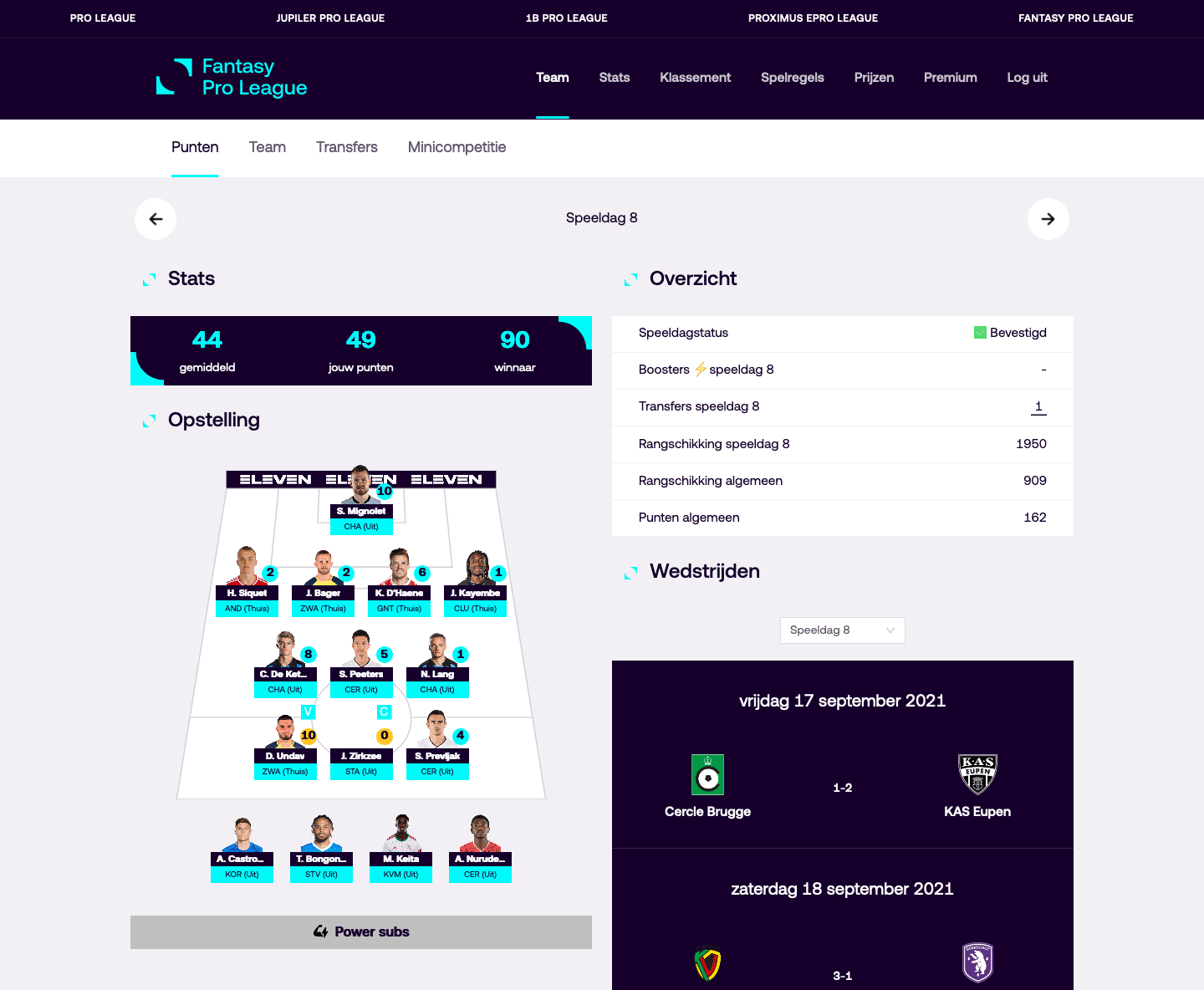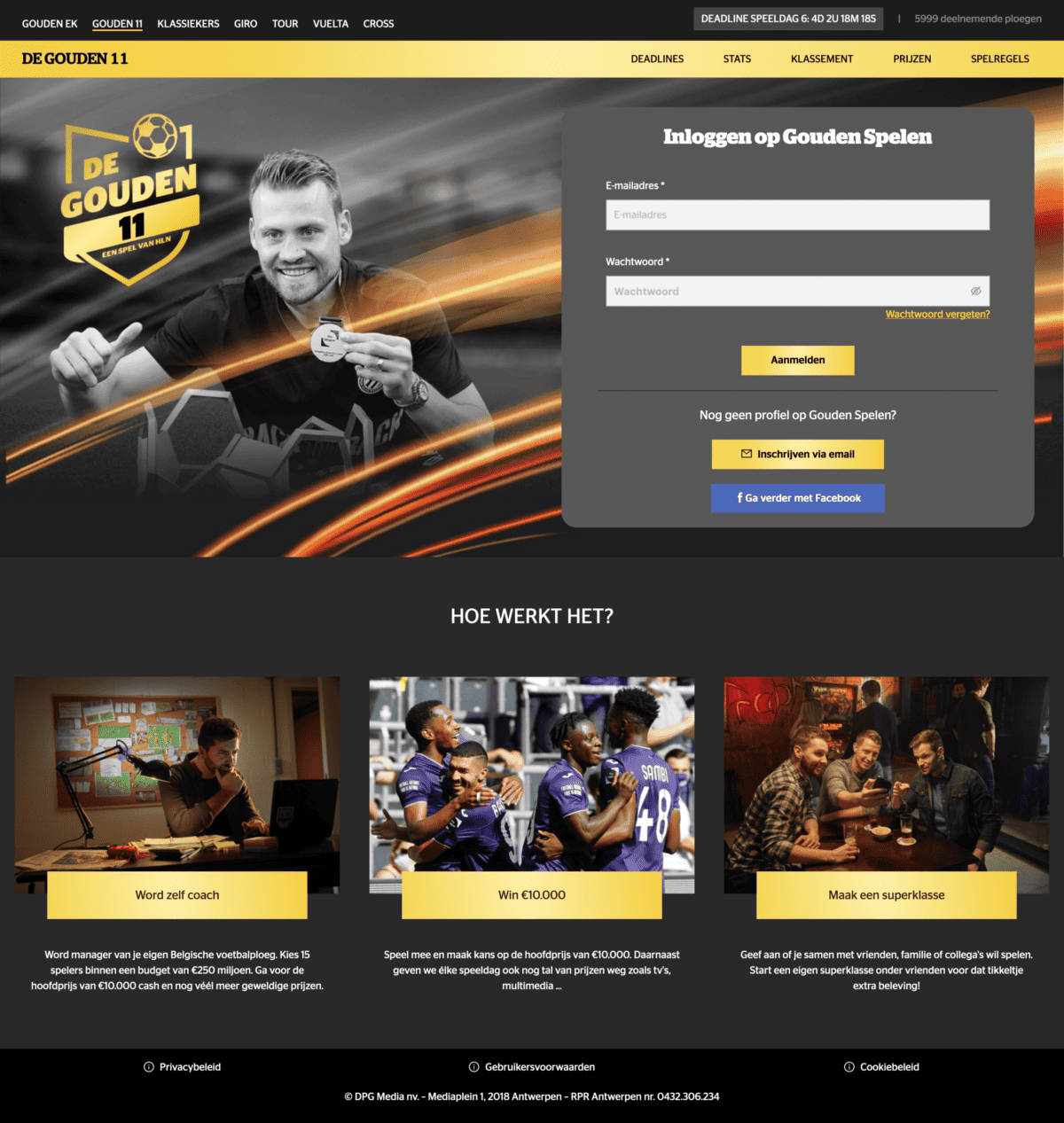
What are things to consider when starting a fantasy sports business? We are going to guide you through the process with a practical checklist.
This is not like one of the many vague blog posts from low cost, low value white label software companies on the subject. We are not going to tell you how to create an app like Dream 11. We are going to inform you on the most important aspects of launching a fantasy sports website. We won’t insult you by stating the obvious (“Make sure your launch is a success!”) or how easy it is (spoiler: it requires some effort).
Starting a fantasy sports business is exactly the same as starting a regular company. You’ll need to choose a business structure, write a business plan, figure out financing, open a bank account, apply for licenses, set up an accounting system, consult your insurance agent and so on. We focus on the specific fantasy sports related areas.
Setting up a Fantasy Sports business
1. Research the market thoroughly
Most of our clients are already active in a specific sports branch. They come to us because they noticed a void that can be filled with fantasy sports. They already have a good sense of where opportunities lie.
But either way, do research on:
- Sports. Is the sport popular enough, or is it gaining traction rapidly? Limit yourself to a region you know inside and out.
- Audience. Which people are fans of the sport? Are they young and tech-savvy? Or are they mostly a bit older and do they follow the sport via traditional media?
- Competitors. Are there already fantasy sports games out there? Or have there been games in the past? If yes, find out why they were cancelled and learn from that.
- Legal restrictions. What does the law in your country say? Do you need a license? Do specific restrictions apply?
2. Define your business objectives
Fantasy sports has many use cases. When it comes to creating your own business, the most relevant one is offering a pay-to-play game. That means that people pay a fee to enter, and that they can win prizes.
Another way to go about this is a freemium game. Everyone can play for free, but you’ll bundle game experience enhancing features into a Premium package. Bear in mind that you’ll only convert a percentage of the subscribers to Premium.
Financing your fantasy sports game purely via sponsoring is possible if you have a massive reach. But then most likely something other than fantasy sports is the core of your business. In most cases it’s not feasible to start a fantasy sports business and rely only on sponsoring. Your financing will need to come from somewhere else.
3. Establish a sizeable reach
Having reach is crucial for the success of your business. You’ll need to start thinking of building a following from the start. This is not an afterthought that will sort itself out when your game is live. It could, but only when you have product-market fit from the get-go.
The reach necessary depends on all the variables in your business plan and how many subscribers you need to break even. That could be 1K, 5K or more.
Building an audience from scratch is hard. Keep in mind that you’ll need to dedicate time and money. Paid advertising might be a solution in the beginning. Or collaborate with a partner who already has a following.
You don’t have to be on every social media platform, pick one and own that.
4. Start building the Fantasy Sports game
You have a clear business objective and you know which audience you want to reach. These two components impact the game concept and its features in a big way. For example, your game can’t be overly technical and difficult to understand if you aim at reaching an audience of casual sports fans in a market where fantasy sports as such is not widely known.
Now it’s time to put all your ideas together into a code base. But what if you don’t have the technical expertise or time available to do so? That’s where fantasy sports providers such as Fan Arena come into play.
We believe that our business model, based on software licensing, is the best and fastest way to get a fully custom and original fantasy sports game up and running when you don’t have the technical expertise at hand. You don’t have to recruit a development team or reinvent the wheel. Read more on the benefits of working with a fantasy specialist.
We advise you to partner up with a true fantasy expert. Don’t get involved with a development company that does 101 other things. How can you be an expert at all these different things at the same time? Don’t go for a cheap white-label solution, because offering the same product as your competitors simply won’t work. Go for a game that is specifically tailored to your objectives and audience. And try to find a party that does more than simply delivering the game. A fantasy expert can add value by sharing insights, marketing advice and tools (Admin, Business Intelligence) to generate engaging content when the game is up and running.
5. Be transparent with your community
In your first season or tournament you might not want all the bells and whistles. Start with a clear game concept that entices your audience to play. That’s way better than creating a complex platform with a lot of features and sports.
Share your product roadmap with your community. Now the product entails X, Y and Z, which would already be enough to persuade them. And tell them that in the next season or tournament there will be new features and/or a new sport. You can even use the early adopters as a valuable source of insights.
Don’t dig financial holes where you can’t get out of by wanting to offer an over the top prize pool. Start with financially viable awards, and work your way up. Announcing compelling stretch goals is one way of doing that. A stretch goal is an additional target that you set to increase the number of subscribers, and offer additional rewards.
Example: your goal is to have 5.000 paying subscribers for your fantasy game, in which you’ll award the overall winner €10.000 at the end of the season. You can announce and communicate a stretch goal to incentivize more people/teams entering the game. A stretch goal could be to up the prize money to €20.000 when there are more than 10.000 subscribers.
6. Fantasy sports related costs to add to your financial plan
Our experience tells us that fantasy sports software usually takes 50% of the budget (or less). That means that the other 50% of your means will go to marketing, prizes and other things.
If you want to do everything yourself, you’ll be confronted with these costs. And you’ll spend considerable time researching and setting up tools.
- Design of a brand identity and game assets
- Tech infrastructure (hosting)
- Game development
- Data feeds
- Prize pool
- Payment services
- Admin and Business Intelligence tools
- Marketing and communication tools
Your workload will dramatically decrease when you work together with a fantasy sports expert. And it will be a lot cheaper too. For example, almost everything is included in a Fan Arena license (design, hosting, admin and BI tools, data feeds etc.).

